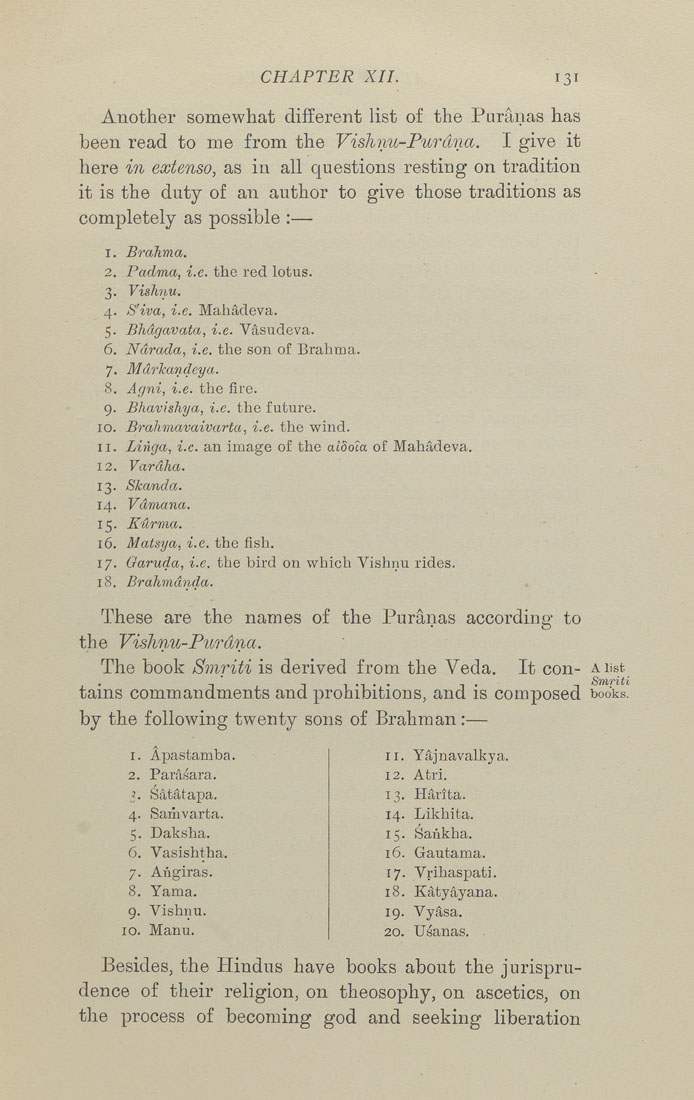Bīrūnī, Muḥammad ibn Aḥmad, Alberuni's India (v. 1)
(London : Kegan Paul, Trench, Trübner & Co., 1910.)
|
||
|
|
|
|
| Page 131 |

CHAPTER XII. 131 Another somewhat different list of the Puranas has been read to me from the Vishnu-Pur ana. I give it here in extenso, as in all questions resting on tradition it is the duty of an author to give those traditions as completely as possible :— 1. Bralima. 2. Padma, i.e. the red lotus. 3. Vishnu. 4. S'iva, i.e. Mahadeva. 5. Bhdgavata, i.e. Vasudeva. 6. Ndrada, i.e. the son of Brahma. 7. Mdrlcandeya. 8. Agni, i.e. the fire. 9. Bhavishya, i.e. the future. 10. Brahmavaivarta, i.e. the wind. 11. Linga, i.e. an image of the aldota of Mahadeva. 12. Vardha. 13. Skanda. 14. Vdmana. 15. Kurma. 16. Matsya, i.e. the fish. 17. Garuda, i.e. the bird on which Vishnu rides. 18. Brahmdnda. These are the names of the Puranas according to the Vishnu-Ptoretna. The book Smriti is derived from the Veda. It con- a iist tams commandments and prohibitions, and is composed books. by the following twenty sons of Brahman:— 1. Apastamba. 2. Parasara. j. Satatapa. 4. Samvarta. 5. Daksha. 6. Vasishtha. 7. Angiras. 8. Yama. 9. Vishnu. 10. Manu. 11. Yajnavalkya. 12. Atri. 13. Harita. 14. Likhita. 15. Sankha. 16. Gautama. 17. Vrihaspati. 18. K4tyayana. 19. VyS,sa. 20. Usanas. Besides, the Hindus have books about the jurispru¬ dence of their religion, on theosophy, on ascetics, on the process of becoming god and seeking liberation |
| Page 131 |







